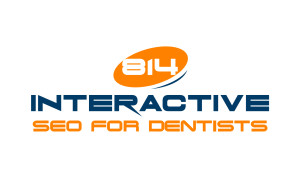Most dentists’ offices, even if they are very successful, usually have limited resources and limited time when it comes to dental search engine optimization.
You want to know what is most important and what is not as important when it comes to optimizing your website and your blog.
What factors do you really need to worry about and what factors can you worry less about?
Here are ten of the most important ranking factors or dental SEO:
1. Keyword in your title tag
Never underestimate the power of keywords and strategic placement.
If you can naturally incorporate your most effective keyword into the title of your website or blog, you have a much better chance of getting that page highly ranked.
This is the tag that Google uses to decide whether or not your page is relevant to what people are searching.
If you have a keyword in that tag, your page is much more likely to look relevant than if it does not contain a keyword.
2. Keyword in your meta description
If you are using a SEO plugin like Yoast on your WordPress blog, you will probably notice that this is one of the factors that it looks for when giving your posts a optimization score.
Why?
Because like having a keyword in your title tag, having a keyword in your meta description helps Google figure out whether or not your website is relevant to certain search terms.
Especially when it comes to blog posts, but also for webpages, making sure that your meta description is keyword optimized is very important.
3. Keywords in your content
This one is obvious. While you can rank a page that has not be carefully keyword optimized, it will generally be more difficult.
You should at least be aware of what your keywords are and make an effort to incorporate them into your content as naturally as possible.
Google will look for those keywords in order to determine whether or not that content will be useful for a searcher.
4. The age of your content
The older your content is, the less likely it is that Google will want to rank it. In the fast-paced digital age, Google prefers fresh content over old content.
This doesn’t mean you have to write total new content every three months—but it does mean that you should make an effort to ensure that your content is as updated as it can be.
It should reflect the most recent information about your practice.
Having a blog that is regularly updated can be a great way to ensure that your website has a steady stream of fresh, relevant, keyword-rich content, too.
5. Mobile optimization
Mobile optimization is now more important than ever before, and as more and more people take to searching on their mobile devices, it will only become more important.
Google cares about whether or not your website is mobile optimized, especially when compiling search results for mobile searchers.
They want to provide those searchers with websites that they can easily interact with.
If yours isn’t one of those websites, you are going to be bumped out of the ranking in favor of websites that will be easy to navigate.
- Original content
This is another one that may seem obvious, but many offices try to use the exact same content to optimize pages for different neighborhoods or parts of the city.
This can lead to lots of pages that all have exactly the same content, just with the neighborhood or city names switched out.
Google doesn’t like duplicate content, even if the duplication is of content that is technically original to your website.
Avoid getting bumped down on this factor by making sure each page’s content really is unique.
7. Links to authoritative sites
Websites and blog posts for dentists’ offices have the opportunity to provide a huge amount of value to their readers, simply by linking not to competitors, but to medical journals and websites.
These types of high-authority links are seen as very valuable because they first, let you steal some of the juice those websites have, and second, provide your readers with more valuable information.
8. Inbound links
How many links you have on high-authority websites can affect your ranking in the search results.
How do you make sure that you get links on high-authority websites?
Writing high-value content is a good way to get natural links, but inbound links can also come from social media and from local directories.
Being active on social media can help in this department, as can making sure that your listings on local directories are updated and have a link back to your homepage.
9. Content length
Longer content is usually better—if you actually have something to say with more words.
Don’t add fluff to your webpages or blog posts just to make them longer.
If you don’t have any substantive to say, it’s better to have shorter content than to have long, useless content.
Focusing on depth and providing as much information as possible will allow you to provide longer-form content, without sacrificing quality.
10. All content optimized
If you have content on your website or blog that is not written content, like images and videos, you can still optimize this content with tags and with captions.
Utilizing alt tags and captions to stick in keywords that will help show Google the relevancy of that content can seriously boost your dental SEO.
These are only ten of over two hundred ranking factors to take into considering when optimizing your website or blog.
But if you are just starting out, focusing on just these ten can help ground your efforts and put you on the path to success.




